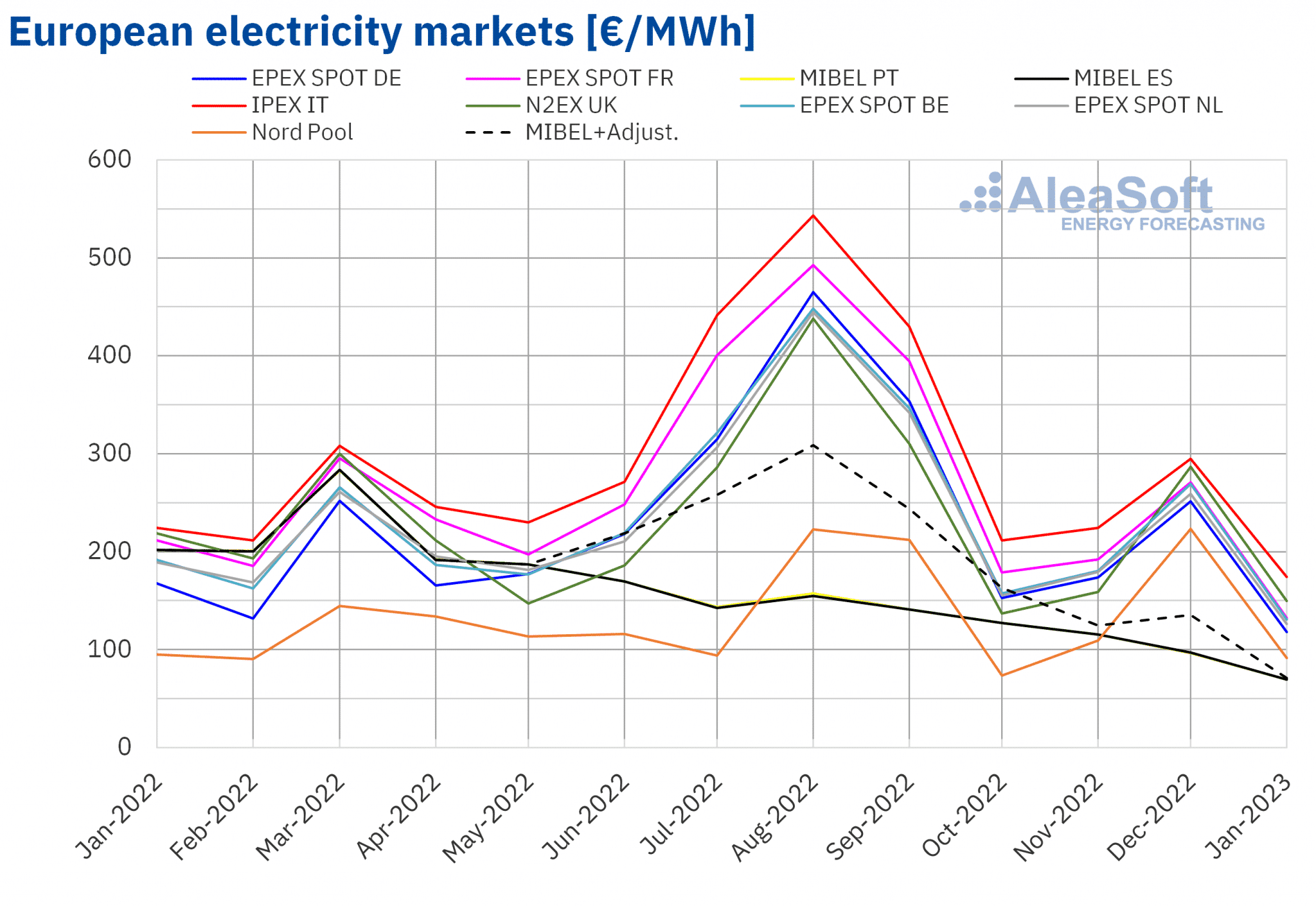OpenAI Under FTC Scrutiny: ChatGPT's Privacy And Data Practices Examined

Table of Contents
FTC's Concerns Regarding ChatGPT's Data Handling
The FTC's investigation centers around how OpenAI collects, uses, and protects user data within the ChatGPT ecosystem. These concerns fall under two primary headings: data collection and usage, and data security.
Data Collection and Usage
ChatGPT collects a significant amount of user data to function effectively. This includes:
- Prompts: The text input provided by users to initiate conversations.
- Responses: The text generated by ChatGPT in response to user prompts.
- Usage Data: Metadata such as frequency of use, session duration, and device information.
OpenAI's data usage policy outlines its intention to use this data for model training and improvement. However, the transparency of these practices has come under question. The lack of granular user control over data contributes to privacy concerns.
Detail: A major concern revolves around potential biases in the data used to train ChatGPT. The model learns from vast datasets scraped from the internet, which may contain existing societal biases. This can lead to biased or discriminatory outputs from the chatbot, raising ethical questions and highlighting the need for more robust data curation and bias mitigation techniques. Users currently lack the ability to specify how their data is used, beyond broad consent given at sign-up.
Data Security and Breach Risks
Protecting user data from unauthorized access and breaches is paramount. OpenAI employs various security measures, including:
- Data Encryption: Protecting data both in transit and at rest.
- Access Control: Restricting access to sensitive data to authorized personnel.
- Regular Security Audits: Identifying and addressing potential vulnerabilities.
However, the sheer scale of data handled by OpenAI, coupled with the inherent vulnerabilities associated with large language models (LLMs), presents significant challenges. A data breach could expose sensitive user information, leading to substantial legal and reputational damage for OpenAI. The absence of a publicly available, detailed incident response plan further fuels these concerns.
Compliance with Existing Data Privacy Regulations
OpenAI's data practices must adhere to various data privacy regulations globally. Compliance with regulations like GDPR and CCPA is crucial.
GDPR and CCPA Compliance
OpenAI's compliance with the General Data Protection Regulation (GDPR) in Europe and the California Consumer Privacy Act (CCPA) in California is a focal point of the FTC's investigation. Key areas of scrutiny include:
- Data Subject Rights: Ensuring users have the right to access, correct, delete, and port their data.
- Consent Mechanisms: Obtaining informed consent for data collection and processing.
- Cross-Border Data Transfers: Complying with regulations governing the transfer of data outside the EU and California.
Detail: Concerns remain regarding inconsistencies between OpenAI's stated policies and the practical implementation of these rights. The complexity of LLMs makes it challenging to fully exercise these rights, and questions arise about the effective enforcement of these regulations in the context of AI. Any legal challenges or complaints filed against OpenAI regarding data privacy compliance are relevant to the FTC's investigation.
Future Regulatory Landscape for AI
The regulatory environment for AI is rapidly evolving. Emerging legislation and proposed regulations will significantly impact OpenAI's future data practices.
- EU AI Act: This comprehensive legislation aims to regulate AI systems based on their risk level.
- Potential US Federal AI Regulations: Discussions are underway in the US to establish federal-level AI regulations, potentially mirroring or exceeding the scope of the EU AI Act.
- Self-Regulatory Initiatives: Industry-led initiatives are attempting to establish ethical guidelines and best practices for AI development.
Detail: The challenge lies in creating a regulatory framework flexible enough to adapt to the rapid advancements in AI technology while effectively protecting user rights and mitigating potential harms. The FTC's scrutiny of OpenAI's current practices will inevitably inform the development of future AI regulations.
Ethical Considerations and Societal Impact
Beyond legal compliance, ethical considerations are paramount in the development and deployment of AI systems like ChatGPT.
Bias and Discrimination
The potential for bias embedded within ChatGPT's data and its impact on outputs is a critical ethical concern.
- Examples of Biased Outputs: ChatGPT may reflect existing societal biases related to gender, race, religion, or other sensitive attributes.
- Mitigation Strategies: OpenAI employs various techniques to mitigate bias, but their effectiveness is debated.
- Challenges in Addressing Algorithmic Bias: Identifying and eliminating bias from complex AI systems remains a significant technical challenge.
Detail: The societal impact of biased AI systems can be profound, perpetuating and amplifying existing inequalities. The need for robust bias detection and mitigation strategies in AI development is crucial.
Transparency and Accountability
Transparency and accountability are essential for building public trust in AI systems.
- OpenAI's Current Level of Transparency: OpenAI provides some information on its data practices, but many details remain opaque.
- Suggestions for Increased Transparency: Greater transparency regarding data sources, model training methods, and bias mitigation techniques is needed.
- Mechanisms for User Redress: Effective mechanisms for users to report and address concerns about biased or harmful outputs are vital.
Detail: Achieving meaningful transparency in complex AI systems is challenging. However, establishing clear and accessible channels for user feedback and complaint resolution is crucial to fostering accountability and building trust.
Conclusion
The FTC's scrutiny of OpenAI and ChatGPT's data practices highlights the urgent need for responsible AI development and robust data protection measures. Addressing concerns surrounding data collection, security, regulatory compliance, and ethical considerations is critical for maintaining public trust and fostering the sustainable growth of the AI industry. OpenAI and other AI developers must prioritize transparent data practices, robust security protocols, and ethical considerations to navigate the evolving regulatory landscape effectively. The ongoing investigation serves as a crucial examination of the challenges and responsibilities associated with developing and deploying powerful AI technologies like ChatGPT. Understanding and proactively addressing these issues is vital for the responsible and ethical advancement of OpenAI's and the wider AI sector's future. The future of AI hinges on prioritizing responsible data practices.

Featured Posts
-
 Bombshell Report Uncovering The Causes Of The Black Hawk And Jet Crash That Killed 67
Apr 29, 2025
Bombshell Report Uncovering The Causes Of The Black Hawk And Jet Crash That Killed 67
Apr 29, 2025 -
 Negative European Electricity Prices A Solar Energy Success Story
Apr 29, 2025
Negative European Electricity Prices A Solar Energy Success Story
Apr 29, 2025 -
 Fn Abwzby Tarykh Afttah Almerd
Apr 29, 2025
Fn Abwzby Tarykh Afttah Almerd
Apr 29, 2025 -
 Experience Willie Nelson And Family Live At Austin City Limits
Apr 29, 2025
Experience Willie Nelson And Family Live At Austin City Limits
Apr 29, 2025 -
 January 6th Witness Cassidy Hutchinson Announces Fall Memoir Publication
Apr 29, 2025
January 6th Witness Cassidy Hutchinson Announces Fall Memoir Publication
Apr 29, 2025
